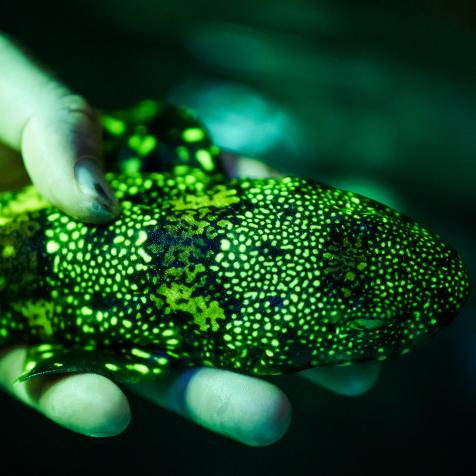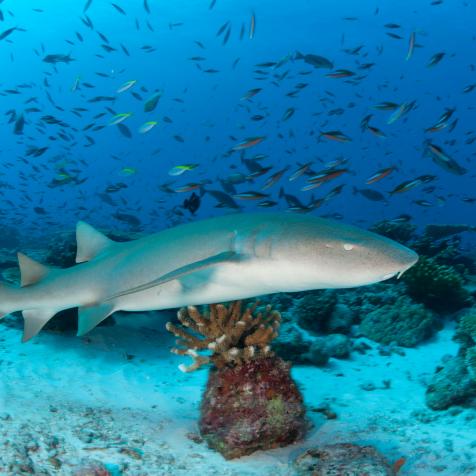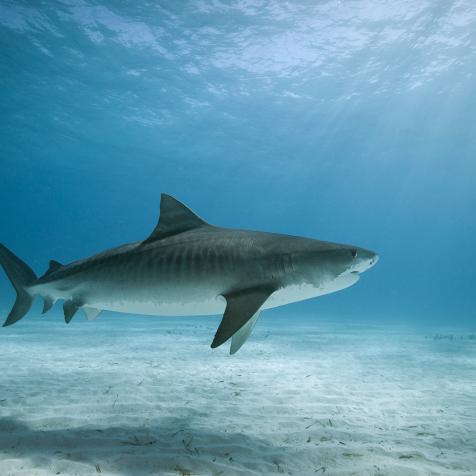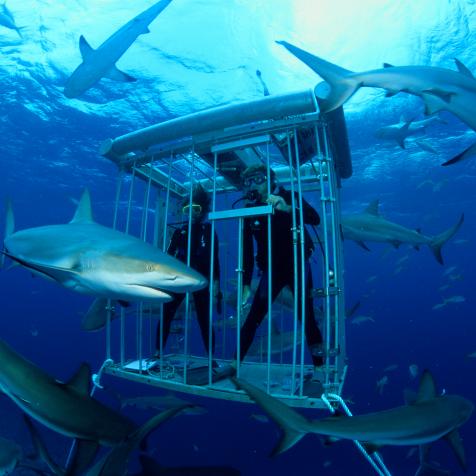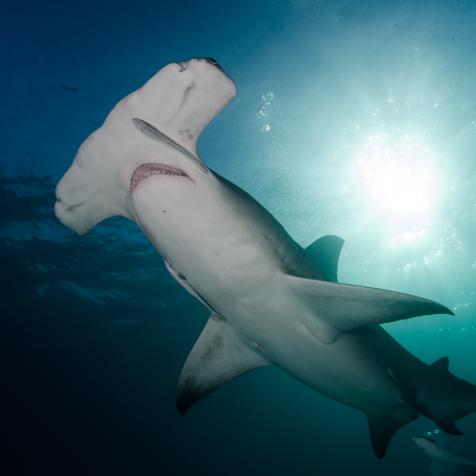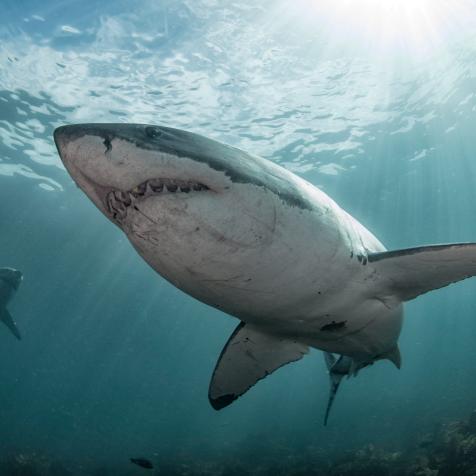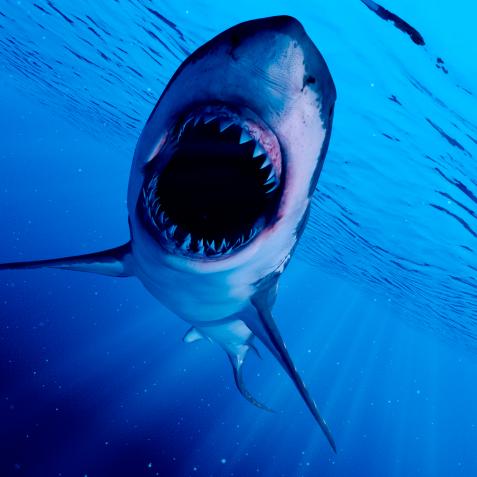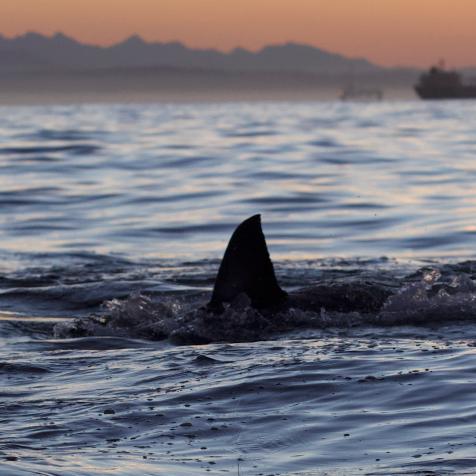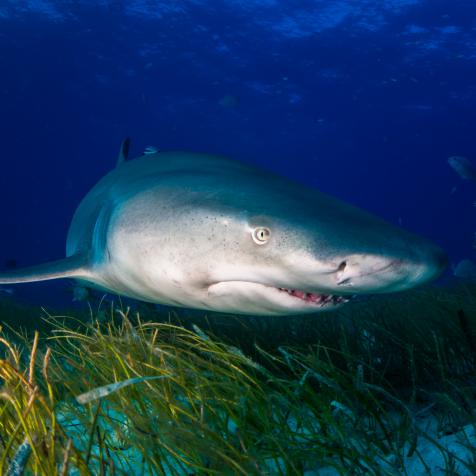
Jesse Colaizzi
Extinct or Alive? A Question Nearly Impossible to Answer in the Ocean
It’s a big world out there, and there are a lot of places to hide. This is the mentality I take when searching for lost species, a passion I have dedicated my life and career as a wildlife biologist to.
When I approached Discovery about finding lost sharks and they asked me if I could do it, I remembered the age old statistic that floats around every marine biology classroom that states, “We know more about the surface of the moon than we do about the bottom of the ocean.”
I thought to myself, well I’ve never found any animals on the moon, but I’m pretty good in the water so let’s give it a try. I teamed up with my close friend and world renowned lost shark scientist Dave Ebert and off to South Africa we went. NEVER in my wildest dreams did I think we would find, not one, not two, but three species of these scientifically missing sharks!
Whitetip Weasel Shark

Adrian
After a week of deploying BRUVs (baited remote underwater video systems), a hazy clip of a long, slender, beautiful shark was caught on camera. Last seen in 1984, this incredible creature with white tipped fins and a black tipped second dorsal was confirmed by Dave to indeed be footage of the outstanding missing creature. This was the first time in history a live whitetip weasel shark had ever been filmed.
And given we were only a week into a month long expedition, we weren’t quite ready to be done with our aquatic game of hide and seek just yet.
Ornate Sleeper Ray

Forrest Galante
The ornate sleeper rays were discovered only in 1984 and were last seen in 2007. Of the three discoveries, this might actually be my favorite because I didn’t make it - and that’s a wonderful thing!
I received a random phone call while driving through the town of Shelly Beach, South Africa and on the other end was Adrian Pearton, a local dive master, who requested we meet with him.
Citizen science is so valuable. One set of eyeballs, looking for a lost species in the world is very ineffective. Millions of people looking, even if they don’t know what they are looking for, is incredibly effective and that is what happened in this situation. Adrian shared stunning HD footage of the creature in question to Dave and me, and we were ecstatic.
It was worth the meeting! It's great to see what my team and I are doing (searching for these lost species) has become public knowledge enough that word gets out and leads to such a significant find. And that is what it’s all about - inspiring people to care enough about science and conservation to make a difference!
Flapnose Houndshark

John Harrington
Finally, in our pursuit of a third lost shark, my team and I narrowed down areas where fishermen said they had previously caught what they believed to be the flapnose houndshark. After two nights of fishing, a tug on the line, and a short fight, something truly magical (and scientifically significant) happened!
Here, in the hands of Dave and me, is the incredible flap nose hound shark, a creature lost to science for nearly 120 years! In Dave’s left hand is the tag, the first one ever applied to this species for data that is so valuable to understanding this species and monitoring its ongoing survival.
It’s next to impossible to describe the feeling I get when holding a creature lost to science in my hands that's alive and well. I am very fortunate to have had this experience a handful of times now. And let me tell you... it’s getting no less thrilling!
Finding lost creatures like this has immense value in helping scientists better understand the ecosystem and all its inhabitants and helps us further protect diversity and fight extinction.
If you haven’t seen it, EXTINCT OR ALIVE: LAND OF THE LOST SHARKS is available anytime on Discovery GO.
Searching for Lost Sharks
Dr. Dave Ebert joined Animal Planet’s Forrest Galante in some of the most shark infested waters in the Southern Hemisphere to track down lost species on EXTINCT OR ALIVE: LAND OF THE LOST SHARKS. He let's us in on his experience.









